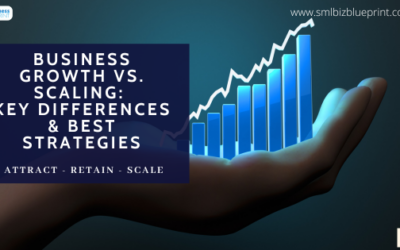When you start your business you are looking to ultimately improve your lifestyle. You can get very excited about the first sale, first customers and starting to make your own way in the world of business.
It is exciting being able to say that this business is your business, that it has been driven by you and it allows you to try some things that you may have been restricted or prevented from doing in your previous business life.
It is exciting to start your business, it is exciting to generate sales and profit and therefore improve your lifestyle for yourself for your family so that you can enjoy the finer points of life.
When you started your business did you have an ultimate aim or goal that you wanted to achieve?
Was it just to improve your lifestyle? Upgrade your home? Change your cars or did you have a greater plan in mind.
Your ultimate game plan could be either to build a business can be successfully passed to generation and generation to provide not only your children that your children’s children,
Or
Was your ultimate game plan to sell your business. Was it to have a business that someone would pay you thousands, millions, maybe hundreds of millions of dollars for.
No matter what your ultimate game plan there are three steps, three fundamentals, must haves that are important for building a business. So your business will survive not only for the short-term but well and truly for the long-term.
- Don’t have just one major customer
It’s common for a business to be dominated by one or two important customers. It happens pretty naturally. You do a good job for one customer, and they buy again. You keep satisfying them, and they stopped looking for other suppliers and start to bring more and more of their orders to you in hope that you can handle the increase in business for maintaining your amazing service.
Given their importance, you are properly also servicing this major customer personally, which makes them even more profitable because you do not need to hire sales service staff to support the account. This, of course, makes both the account and your business very profitable, it makes it harder to walk away. The customer has now become your cash cow.
Pretty soon you have codependency that can undermine the value of your company and make it virtually impossible for you to sell. This hinders your ability to grow your business because you are tied to this one customer.
You also become very reliant upon the success or failure is of this customer. If they suddenly suffer a downturn then your business will suffer. This is a sure way to either incur a lot of financial hardship or headache and maybe even lose your business.
It is very important that you practice and implement the process of analysing your customer sales regularly.
View your business through the 80/20 rule.
As this famous rule states, 80% of your business will come from 20% of your customers.
You need to get into the practice of regularly analysing your sales. I would suggest every quarter, if not monthly, to do an analysis of your customers.
Look at your customers from a sales viewpoint and profitability viewpoint.
Your accounting software should be old to provide you reports that help you with this. This will allow you to see how reliant you are upon 1, 2 or maybe 3 or 4 customers.
The key is to analyse your top customers ie the 20% to give you 80% of your sales and to see what their characteristics, personalities, styles are. What type of business are they?
What you then do is look to find new customers that are a similar characteristic to these customers.
This will stop you being so reliant upon one onto customers and help you to expand your business to similar customers ensuring that you have a strong foundation for both growth and financial security.
To build a valuable company you need to reduce your reliance on any one customer. A good guide is to make sure no customer represents more than 10 to 15% of your revenue.
- Sell less stuff to more people
We survive the early years of our business by listening to our customers and responding to their requests. The problem is, when all you’re doing is reacting to customers, you end up offering way too many things – customising too much – because everyone wants a slight twist on your offering.
If you offer an ever expanding list of things, your staff will never get really good at making or selling anything. The broader your product service line, the more your business will be reliant on you – the person with the most knowledge in your field – rather than your employees.
If the businesses too reliant on you personally, it will be hard to sell, hard to operate, hard to do anything with.
To get yourself away from this you have to sell less stuff to more people. That may seem like counterintuitive advice, but some of the fastest growing, most valuable companies in the world do it.
Have a look at Apple. Apple is really good at selling a few core products (iMac, iPhone, iPad) that offer the same basic user interface. As a result, the company can train it Apple Store employees on one basic operating system and a few core products.
By contrast, if you walk into a major department store retail operation with thousands of technology products running hundreds of different operating systems. If you are able to find someone to help you then you are lucky if they can read the specifications on the back of the box, they know very little about the product and how it works and operates.
Focusing on selling less stuff to more people will allow your business to scale up beyond you, which in turn will allow you to grow through the ceiling that holds back many owner – dependent businesses.
Then and only then will you then have time and energy to focus on growing your business. If you have so many different products then you will just be spending a lot of time chasing your tail.
Remember your ultimate goal is either to build a business that supports you and your family and your desired lifestyle either through the profits it generates from the day-to-day running or by you ultimately being able to sell your business to someone else.
- Stop Grovelling for Work
How do you explain your business in a social situation?
Do you define yourself by your industry?
Now be honest here when you’re out at a party or meeting people do you say I own a printing company, I own a distribution company, I own an accounting practice.
Or do you describe what makes your business unique and how you help your customers? For example, we have developed a process for printing annual reports that it reduces the turnaround time to 3 days.
We have developed a process that allows small business owners to generate a steady stream of qualified leads for their business
The problem describing yourself as a part of an industry is that most industries are commoditised. Your sentencing yourself to a life of low margins and grovelling for work. When there is nothing unique about your business, the customer has no choice but to rely on price as the only decision-making criterion.
And before you claim customer services is what makes you unique, remember that people don’t buy wishy-washy claims as a point of differentiation. After all, service is in the eye of the beholder, and until your prospect makes the decision to become a customer, intangible claims about how well you treat your customers will not sway them.
Someone will not buy from you just based upon your service claims, they will buy from you based upon what you do for them. What is in it for them. That is what drives the purchase decisions of your customers.
Describe what you do in concrete terms and what makes your business unique and different.
For example, Zappos became a successful company not because it’s a retailer of shoes but because it offers a two way free shipping policy.
Free returns makes Zappos special because that answers the question for the customer of what’s in it for them.
Have a look at shoe retailing it has become a boring commoditised business with low margins and very little hope for any owner to be acquired. Allowing people to return shoes if they don’t like them all from the comfort of their own home is unique in a big part of the formula that allows Zappos to scale up into a sellable business.
Stop describing their industry and start describing what makes you irresistible.




